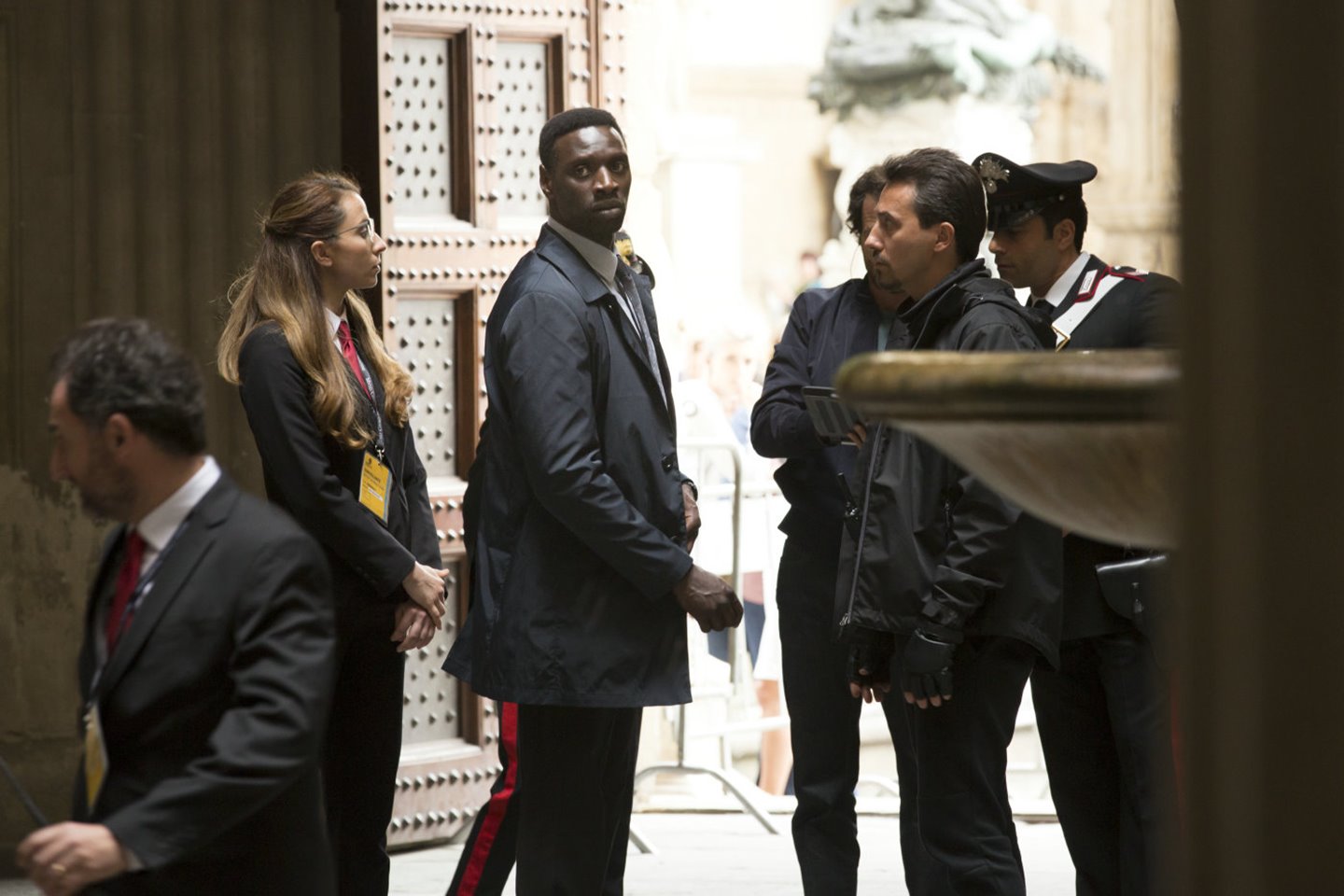When it comes to the film series adaptations of Dan Brown's novelizations, there's always been a feeling of disappointment. Starting back in 2006 with The Da Vinci Code (in actuality the second of the Robert Langdon series), the highly-anticipated adaptation ended up being a critical disaster; with placements in bottom ten movies of the year lists and even a Razzie nomination for director Ron Howard. Its sequel, Angels and Demons, fared a little better but got banned in Samoa for its representation of the Catholic Church and didn't do quite as well financially. And after a long time working on an adaptation of The Lost Symbols (the third entry to the book series), focus instead shifted towards Inferno. But with a seven-year gap between entries and a clear formula starting to show surrounding Langdon's escapades and the revolving door that is the women who accompany him, can this third instalment to the franchise be the resurrecting component that it sorely needs it to be?
When Robert Langdon (again played by Tom Hanks) wakes up in a hospital in Florence, Italy, he has no recollection of how he got there; plagued by amnesia caused by a bullet wound and strange visions that seem to resemble that of Dante's Inferno. Almost immediately, though, he's hunted down by a policewoman, so he's taken into hiding by his British doctor Sienna Brooks (Felicity Jones) for the sake of healing his mental instability and trying to piece together how he went from residing back at Harvard University to on the run in Florence. With only a Faraday pointer and information on the recently deceased Bertrand Zobrist (Ben Foster as a fear-mongering scientist who believes judgement day is upon us) must figure out what the clues are leading up to, whilst being uncertain about whether or not they can trust the government officials that are tracking them down – while finding out that Langdon may have stolen a vital part of the puzzle before he was attacked. With the potential risk of human extinction on the cards, can Langdon and Brooks solve the puzzle before it's too late?
Setting itself up in a dynamic fashion, Inferno, unfortunately, dissolves into being an accurate representation of its title. What with its outlandish belief on filling the story with many a plot twist and a few too many changes to character personalities, it lends too often for some easy moments of ridicule and preposterousness that it makes you forget that this is meant to be a serious movie – bar the occasional mute moments of "humour" instilled over various moments. While the actual mystery aspect is a fine one, with a solid basis for going on the quest, the numerous deviations for the sake of an elongated chase sequence or the underwhelming plot twists leads only to the whole affair feeling like a disappointment, complete with a lacklustre finale set within a gorgeous concert hall, which can perhaps make a suitable summation of the whole thing: gorgeous cities in a dissatisfying story.
A common criticism for the Dan Brown adaptations is that Tom Hanks is ill-suited for the lead role, and while I can't personally comment for the prior instalments of the series, it can be said that he simply does an okay job here. By Hanks standards, it's not particularly strong nor noteworthy – especially compared to the majority of his filmography – but there's still that sense of charm given in his performance. In the same veins is Felicity Jones, who has so often proven herself well with her recent work (most notably with The Theory of Everything) that it makes it all the more disheartening to see her in a mostly minimal role; playing the sidekick despite the intelligence and attitude that's been given to her. Things do change by the time the third act rolls by, but not so much for the better. Meanwhile, Omar Sy proves to English-speaking audiences that he really needs a better agent if he wants to be given good roles (this, Jurassic World and X-Men: Days of Future Past team up for some underwritten characters); Ben Foster is given a minimal role and a slightly hammy performance in return; Sidse Babett Knudsen makes for an underused head of the World Health Organisation; Ana Ularu as a murderous police officer is bland and flavourless, and Irrfan Khan gives his usual best in a role that can't seem to make up its mind over loyalty.
On the plus side of things, the landscapes and cinematography remain a sight to behold. With director Ron Howard dropping the overreliance on leading lines from previous effort In the Heart of the Sea, he instead creates a movie filled with love given towards his backgrounds and his actors, whilst adding plenty of artistic integrity towards the hallucination sequences. However, whenever visual effects are implemented into the piece (including seemingly, and bizarrely enough, an establishing shot within a museum), it always comes across as a tad shoddy. In the case of this instalment I can understand – its budget was slashed 50% by comparison to its predecessor – but it still looks rather off-putting.
Inferno has been getting something of a critical mauling, and it's hard to deny that it may be for the best. Thanks to its overreliance on plot twists and secretive character motivations it makes the whole adventure feel distant and unwelcome for its audience. But despite that, there is still some form of care being given to the source material by a couple of the cast members and Ron Howard's direction. Perhaps if a little more care and development had been given to the piece like initial third instalment The Lost Symbols was receiving before being shelved, Howard and company wouldn't have been in this mess. 5/10.
.png)


No comments:
Post a Comment